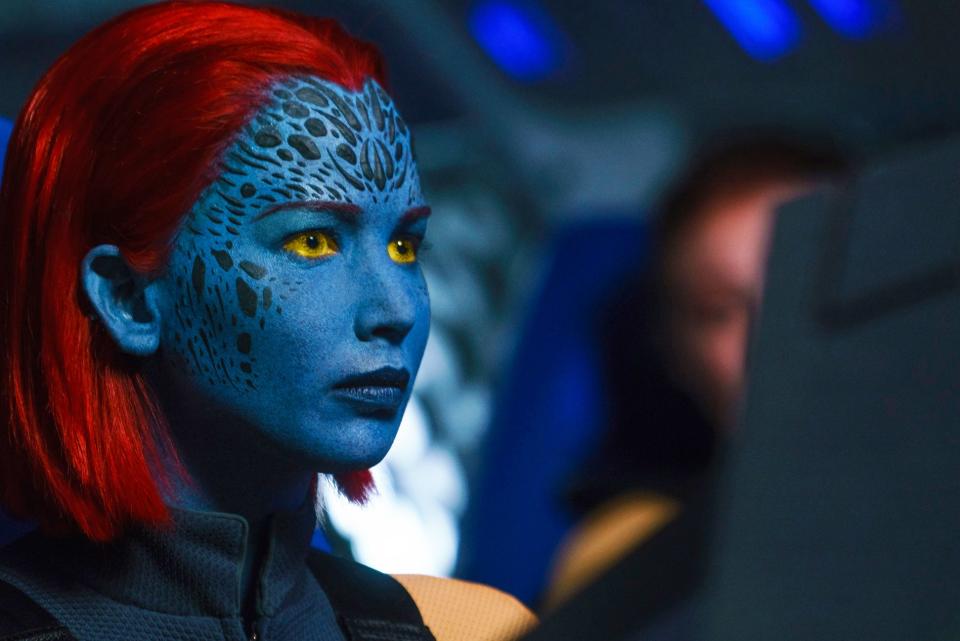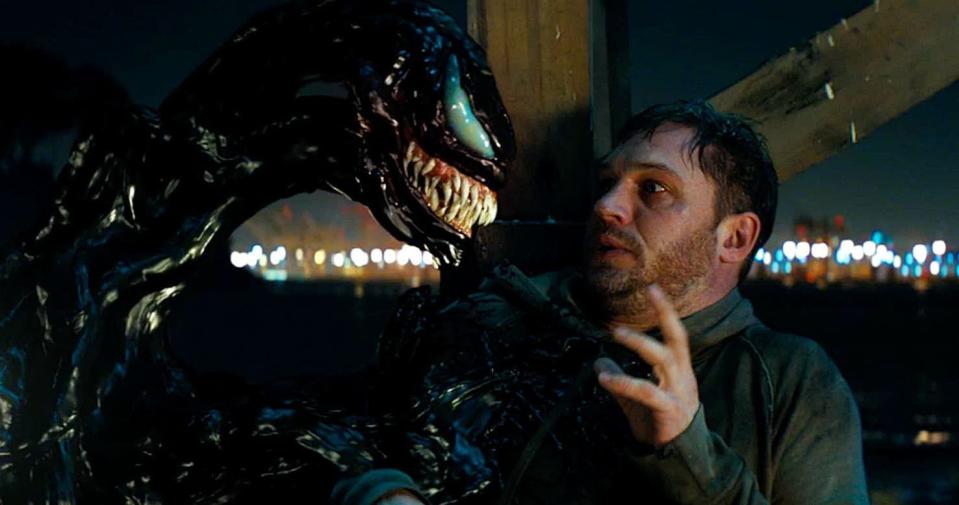Sony's 'Venom' is too much hero and not enough villain

Venom is not a bad movie, it’s just not the movie most people were expecting. From the trailers, it looked set to be a rather sinister and scary interpretation of the Eddie Brock-Symbiote dichotomy, offering a sort of Jekyll & Hyde dynamic, but the final movie turned out to be more of a buddy comedy and that’s disappointing.
The character is one of Marvel Comics most legendary villains, an iconic adversary of Spider-Man who has kept the web-slinger on his toes since the ’80s, but it wasn’t until the Symbiote bonded with Eddie Brock that it truly became the superhero’s worst nightmare.
Even the moniker given to Brock’s alter-ego reflected the venomous tabloid stories he was writing after being fired from the Daily Globe, an incident he blamed on Spider-Man. For years, Venom tried to kill Peter Parker, both in civilian and superhero form, but with Spidey out of the picture, much of the storylines focused on the duo’s antihero antics, like in Venom: Lethal Protector, which is what Sony’s movie is based on. Sadly, in the transition from page to screen the character becomes a hero too quickly, leaving out much of the villainous traits that he’s famous for, which is a shame considering who is playing the role.
Tom Hardy has a penchant for peculiar characters and so often we’ve seen him bring an intensity and nuance to his roles, especially those that err on the more Machiavellian side of caution. It made sense that he was cast as this dual Marvel character, but he would have done a better job if he was allowed to bring out the darker sides of both Eddie and the alien parasite. The Symbiote feeds off of Brock’s hatred for Spider-Man but also the man himself.
Remember, this is a parasite who is simultaneously making the body it attaches to both stronger but weaker too. It’s a terrifying concept, but the film doesn’t push hard enough to showcase this or the lack of moral code that Venom brings to proceedings. And even without Spider-Man as a target, the writers could have still focused Brock’s vengeful, murderous attitude on another character like Carlton Drake or even Anne’s new boyfriend.

The same problematic interpretation can be seen in the X-Men franchise. Many fans were disappointed (and still are) with Jennifer Lawrence’s portrayal of Mystique who is far more antagonist than heroic protagonist in the Marvel Comics. On screen, Raven pretty much always ends up being the hero – this is Fox seemingly trying to cash in on Lawrence’s Hunger Games popularity – thus retconning her villainous persona established by Rebecca Romjin in the original trilogy. One could argue that Lawrence should have been cast as Emma Frost instead as at least the source material corresponds with a transition from supervillain to superheroine, but that’s a whole other matter.
With Venom, there’s no denying that he has become an antihero on the page and with Spider-Man out of the picture for Sony’s Cinematic Universe (right now) the Lethal Protector route was a far easier direction to go in, but that hasn’t made for a better film. If they had amped up the darker, cannibalistic side of Venom contending with a more tortured and jaded Eddie Brock, making the movie focus on the issues of that relationship – rather than doing the knee-jerk ‘end of the world’ narrative we’ve seen so many times before – it would have paid a better homage to both classic and contemporary iterations of the character as well as be more convincing.
Sony themselves have come up with some great Spider-Man villains in Willem Dafoe’s Green Goblin and Alfred Molina’s Doc Octopus, bringing to the screen the human side of these bad guys that have been reflected in the MCU universe too. Erik Killmonger, Hela and Thanos are nuanced villains that are victims of their own background and/or warped sense of morality.
Elsewhere, Punisher and Deadpool are great examples of the super-antihero that has been brought to life without sacrificing the violence or moral ambiguity they are known for. And there’s a reason why Logan is considered the best Wolverine movie, and for some the best Marvel one too, because it was allowed to showcase the real brutality of the iconic character and he doesn’t pull his adamantium punches.

Maybe if Sony trusted the audience more to embrace this kind of character they could have empathised with the Eddie Brock-Venom dynamic that comic book fans have for years. And it’s not like we haven’t seen this type of split personality done well on screen already. Leigh Whannel’s Upgrade is a tense, gritty and violent thrill ride that tells the story of a quadriplegic who is taken control of by an ominous computer program after a chip is implanted in his neck. Then there’s M. Night Shyamalan’s Split which showcases James McAvoy’s 21 distinct personalities (seven we meet) that scare, charm and creep you out in equal measure.
Both movies show that the lead can be likable but it doesn’t mean the film has to end with them on a heroic pedestal. They can lose, or their bad side survives, and the audience is still satisfied with the results. As the comic book movie genre expands and studios look to more than just superheroes to lead their output it’s important that they remember this.
Obviously, Sony had an angle for where they want Venom to go, the mid-credit scene pretty much confirms that, and with rumours they are hoping to have him cross over into Spidey territory at some point one can understand the sanitised version they put out. But we’re talking about this film, this establishing of an iconic Marvel character and it seems too many variables have led to a shallow antihero that doesn’t hold up to Fox or Marvel Studio’s offerings.
Venom deserved better than that.
READ MORE
How Venom complicates the MCU connection
Why are Lady Gaga fans trolling Venom?
Fun facts about Tom Hardy

 Yahoo Movies
Yahoo Movies 
